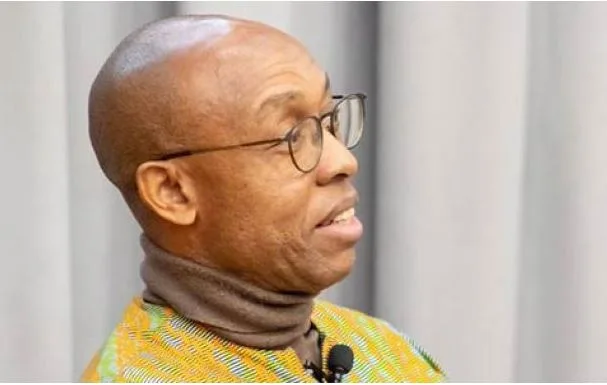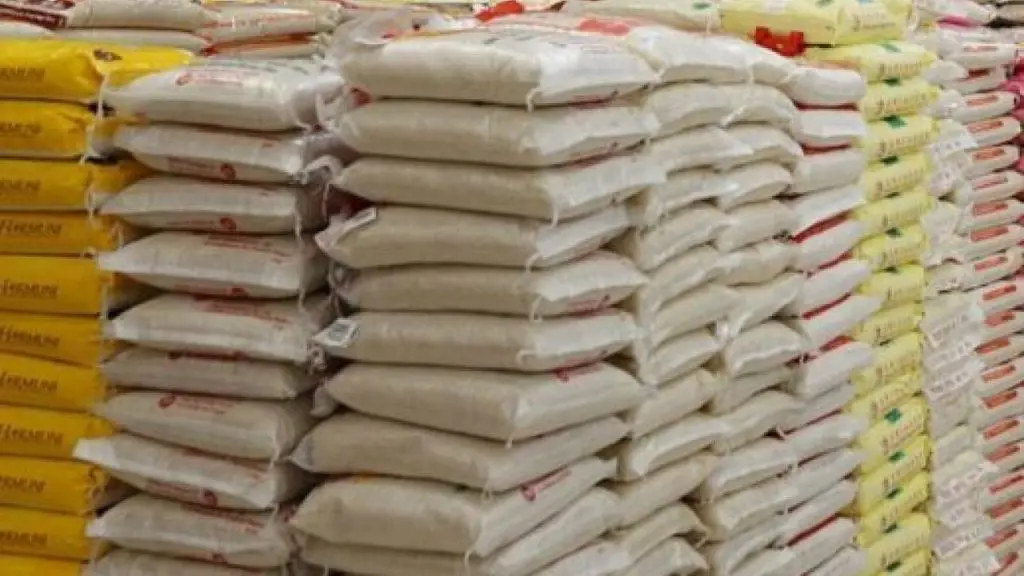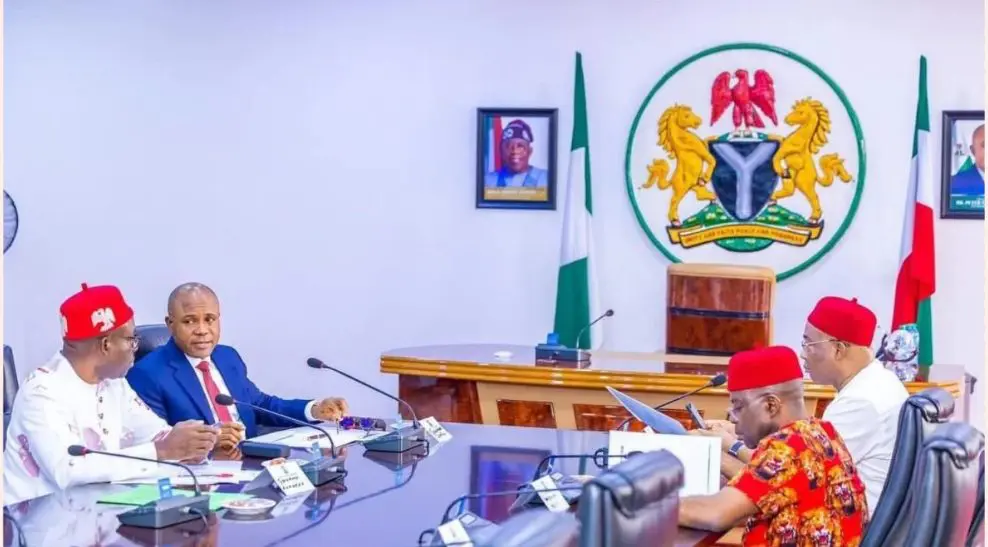News
Mujahid Asari Dokubo and the life cycle of the law of rule

In 2005, the Nigerian government charged Mujahid Asari Dokubo with five counts of treasonable felony, running an unlawful society, and publishing a rumour likely to cause fear and alarm. The charges stemmed from a meeting of the Pan-Niger Delta Action Conference/Council, at which Dokubo and other activists criticized the government and called for President Obasanjo to be removed by other than constitutional means.
Dokubo was denied bail and his case was appealed to the Supreme Court, which upheld the denial of bail. The court’s reasoning was that national security took precedence over individual rights when national security was threatened.
The author of this article argues that the Supreme Court’s decision was plainly squalid and a poor example of the rule of law. The author also argues that the law of rule in Nigeria is characterized by its shiftiness and lack of moorings in principle.
The author concludes by noting that the shoe is now on the other foot. With the All Progressives Congress (APC) in power, Asari and his followers are now the toast of the law enforcement. The author argues that this is just as unjustifiable as it was to place Asari and the Niger Delta advocates underneath the law in 2005.
The author’s article is a powerful critique of the law of rule in Nigeria. The author makes a compelling case that the law is applied in a way that benefits the powerful and oppresses the powerless. The author’s article is a timely reminder of the importance of the rule of law and the need to hold those in power accountable.
News
Why rice price is decreasing in Nigeria – Millers

The Association of Rice Millers has attributed the nationwide decline in rice prices to the reopening of the Nigeria-Niger border. Jonathan Joshua, the chairman of African Rice Millers in Nasarawa, conveyed this information in a statement.
Joshua, who also serves as the national president of the Association of Small-Scale Agro Producers in Nigeria, highlighted that the price of rice is anticipated to decrease even more in the next couple of months with the onset of harvest.
“Some mills that ceased operations due to a shortage of paddy last year and earlier this year are now resuming production as they can easily acquire the grain from neighboring countries following the reopening of the Nigeria-Niger border,” he stated.
“We anticipate further decreases in paddy prices when farmers begin harvesting in two months,” he added.
Despite the inflation rate rising to 33.20 percent in March 2024, rice prices have decreased by 19 percent.
News
Dislodged criminals relocating to rural communities – Abia govt alerts citizens

The Abia State government has reported that suspected criminals, who were previously displaced from their hideouts by the state’s joint security team, Operation Crush, are now relocating to other parts of the state, particularly rural communities, in order to evade detection by law enforcement.
This relocation, as stated by the state government, aims to avoid potential identification by security forces. The concern was raised over the weekend by Navy Commander Mac Donald Uba (Rtd), the Special Adviser on Security Matters to Governor Alex Otti, in a press release.
Uba urged residents of Abia State to remain vigilant regarding the movements of such criminal elements in their vicinity. He also appealed to traditional leaders, Presidents-General, village heads, and village chairmen to promptly report any suspected criminals or individuals with questionable backgrounds to the nearest police station or other security agencies.
News
RUGA: South-East governors living in deceit, denial – Intersociety

The International Society for Civil Liberties and Rule of Law (Intersociety), a non-profit organization dedicated to human rights and democracy advocacy through research and investigation, has accused South-East governors of proceeding with the establishment of Fulani herdsmen settlements across the region.
In a statement provided to DAILY POST on Monday, Intersociety alleged that many of these governors had their elections manipulated and were now executing the agenda of influential figures.
The statement, signed by Emeka Umeagbalasi, Chair of the Board; Chinwe Umeche, Head of Democracy and Good Governance Program; Obianuju Igboeli, Head of Civil Liberties and Rule of Law; Ndidiamaka Bernard, Head of International Justice and Human Rights; Ositadinma Agu, Head of International Contacts and Mobilization; and Chidinma Udegbunam, Head of Campaign and Publicity, warned of dire consequences if South-East lands were handed over to herdsmen.
Intersociety cautioned that the actions of the governors could potentially transform the South-East into a region prone to jihadist violence similar to Benue, Plateau, and Southern Kaduna. Despite previous warnings, evidence suggests a looming threat to the security and safety of the South-East and its inhabitants, particularly regarding freedom of religion, particularly Christianity.
The organization accused the governors of facilitating the influx of Fulani jihadists and their allies into the region, armed with illegal weapons and enjoying impunity. It suggested that the governors’ actions were motivated by their desire to maintain power, even at the cost of compromising the security and religious identity of their constituents.
Intersociety highlighted a statement by the National Leadership of the Miyetti Allah Cattle Breeders Association of Nigeria as evidence of the governors’ complicity in ceding lands to herdsmen. It noted that communal lands, forests, and farmlands in indigenous Igbo areas had been invaded and seized by Fulani herdsmen, armed with illicit firearms.
Furthermore, the organization criticized the biased stance of the Anambra State Government and accused the Enugu State Government of coercing communities to surrender their lands for Fulani settlements.
Intersociety alleged that the Enugu State Government had issued veiled directives to communities, such as Elugwu-Akwu, to hand over their lands for settlement, demonstrating a disregard for the welfare and interests of their citizens.
-

 World News7 months ago
World News7 months agoWhat we know about Israel’s war with Hamas
-

 Sports7 months ago
Sports7 months agoLaLiga: Everyone want to play with him – Vinicius on player Real Madrid should sign
-

 World News7 months ago
World News7 months agoIran calls on Islamic, Arab countries to confront Israel
-

 Tech7 months ago
Tech7 months agoTop 10 AI Skills to Learn in 2023
-

 Entertainment7 months ago
Entertainment7 months agoBET Hip-Hop Awards: Black Sherif wins big as Burna Boy loses seven nominations
-

 Entertainment6 months ago
Entertainment6 months ago‘Black Panther’ star Lupita Nyong’o breaks up with boyfriend, Selema Masekela
-

 ICT8 months ago
ICT8 months agoApple Bows To EU, Unveils iPhone With USB-C Charger
-

 World News7 months ago
World News7 months agoZelensky seeks defences for winter on visit to NATO






